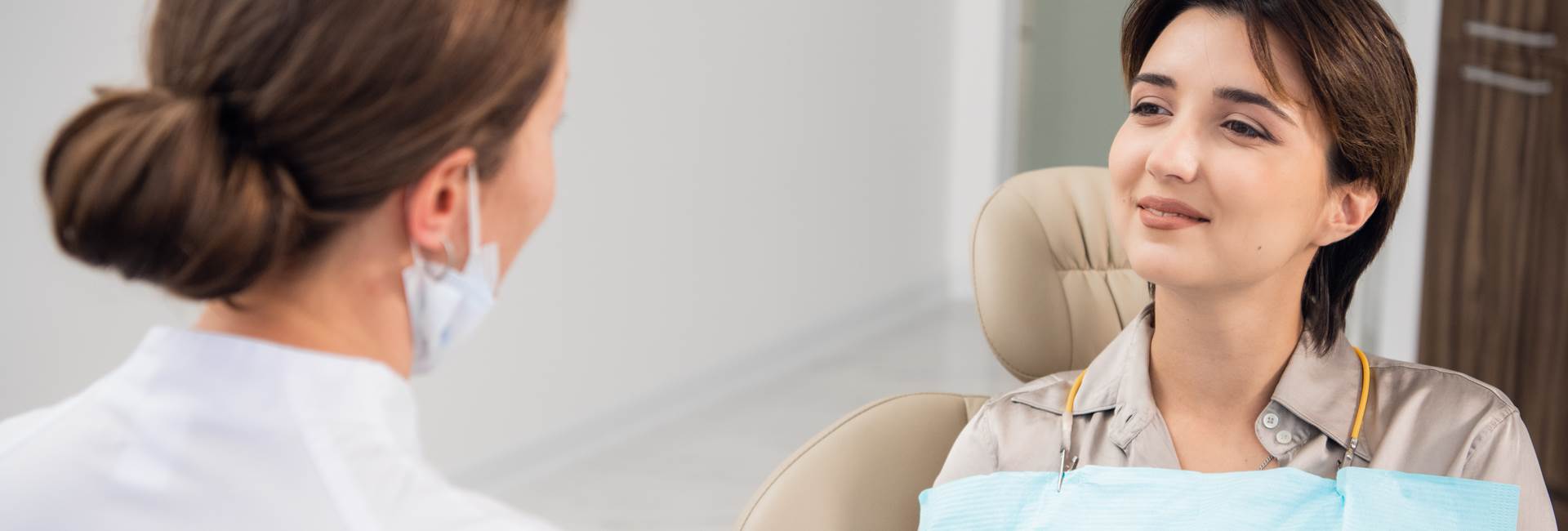FAQ’s
At Argyle Family Dental, we are in network with several insurance plans. Each plan varies on what procedures it will cover and how much benefit it will provide. We will research your individual plan to do a benefits check and give you as close to an accurate estimate as possible before proceeding with any treatment. For those who do not have any dental insurance or coverage, we do offer an in-office savings plan that may be helpful.
If you feel you have a dental emergency, please call our office right away! If it is outside normal business hours, you will find on our voicemail message that Dr. Khoda has provided a number to reach her at and will do her best to return your call promptly to guide you through the emergency.
Most of our patients have some level of dental anxiety, so you are not alone! If you are looking for options to make your visit more comfortable, we can make nitrous oxide available during your appointment. If nitrous oxide, or “laughing gas,” isn’t enough to make you relaxed, we also offer oral conscious sedation that leaves you minimally sedated. With oral conscious sedation, our patients have found that they can complete their treatment with little or no memory of the dental visit.
Absolutely! The American Academy of Pediatric Dentistry recommends that kids see a dentist within six months of getting their first tooth or by age one. We use several methods to make our kid patients comfortable during their visit, and of course, our “treasure chest” is fully stocked!
Currently, we have evening hours until seven o’clock available on Thursdays. We are closed on the weekend as we encourage our team to enjoy quality time with their families.
X-rays in the dental setting are considered safe and necessary. With new digital technology, the amount of radiation is minimal. In addition, we use lead shields over your body to protect you further. Among many reasons, we require X-rays to check the bone level around your teeth for any possible infections and to check for cavities in between your teeth that we would otherwise not be able to detect with a visual examination.
Different methods work better for different patients. We offer in-office whitening with fast results and take-home whitening kits that you can use at your own pace in the comfort of your home. A consultation with Dr. Khoda would help determine which option would be best in giving you the results you’re looking for!
If you are missing a tooth or several teeth, we have options, including implants, bridges, and partial or complete dentures. Explore our website or call the office to learn more!
We are fans of electric toothbrushes as we feel they do a much better job at removing plaque than manual toothbrushes. Regardless of whether you use an electric or manual toothbrush, we strongly advise that you make sure it has soft bristles. Medium or hard bristles can easily damage your teeth and gums over time. Your toothpaste should contain fluoride to help prevent the development of cavities. Any toothpaste brand with the ADA (American Dental Association) seal of approval is recommended. What does Dr. Khoda choose? Sonicare toothbrush and Arm & Hammer Sensitive toothpaste.
Flossing is the most common way to ensure that we are cleaning in between our teeth! If the plaque and bacteria that collects there are not removed regularly, it may lead to gum disease or cavities. We also recommend the Waterpik® water-flossing. This is especially useful for people with braces, implants, bridges, or numerous crowned teeth.
If your hygienist has informed you that you need a “deep cleaning,” or scaling and root planing, it means that there is an active infection in your gums called periodontal disease. This has resulted in bone loss around your teeth and caused your gums to inflame and bleed easily. The only way to stop the disease process from worsening is to remove the bacteria that is harbored deep underneath the gums. If periodontal disease progresses, it may result in tooth loss.
Yes! It is strongly advised to continue with your regular dental visits when pregnant to prevent any existing dental conditions from turning into an emergency. Pregnancy hormones have been known to increase your risk of developing gingivitis, so it is vital to keep up with your regular cleanings to keep it in check! Although we may limit X-rays to the most urgent situations until after the baby is born, if X-rays are required, the lead shields are there to protect both mom and the baby. If any treatment is needed, you can still be numb for your procedure, as we have anesthetic options that are safe to use during pregnancy. Congrats on the new addition to your family!


